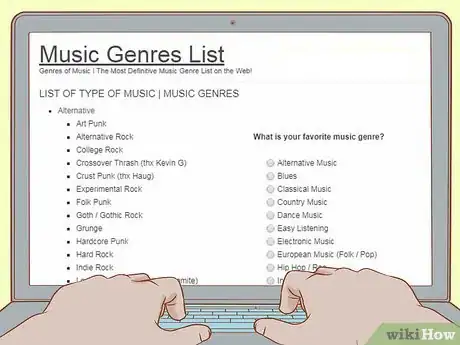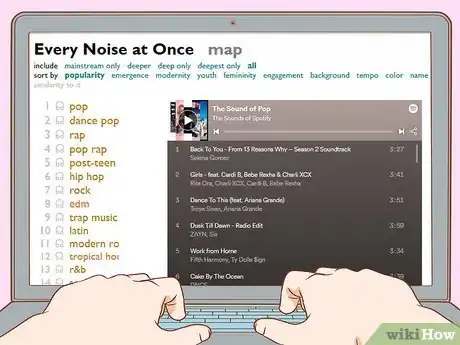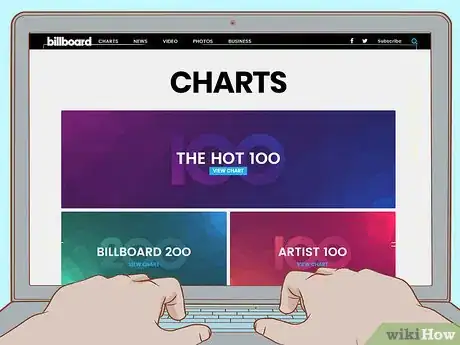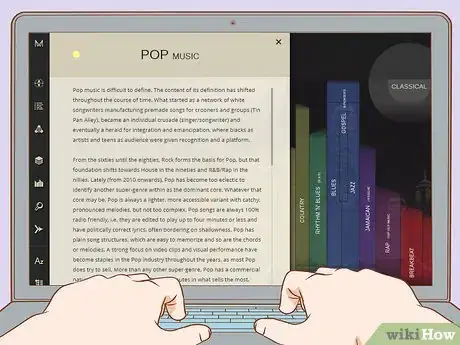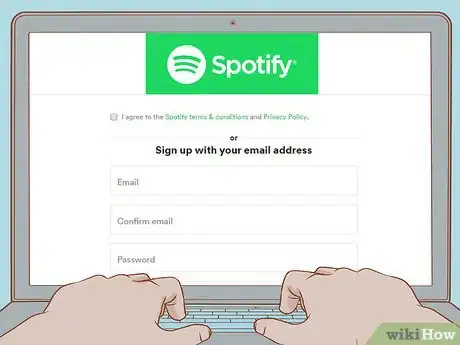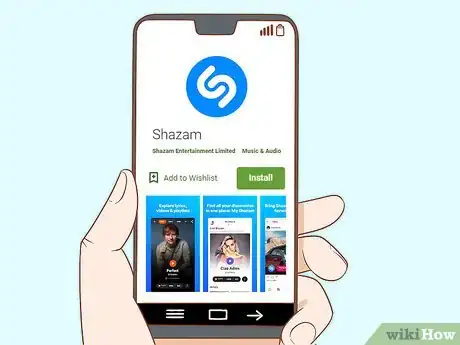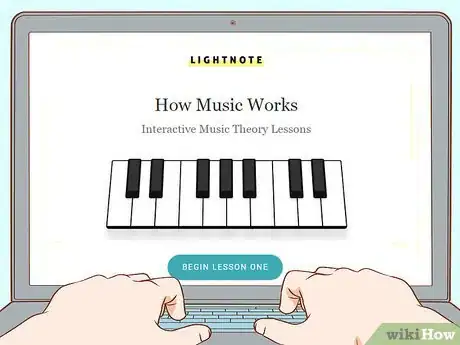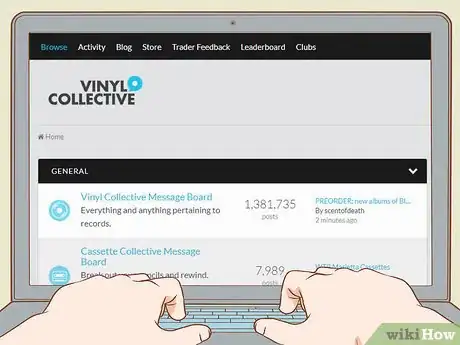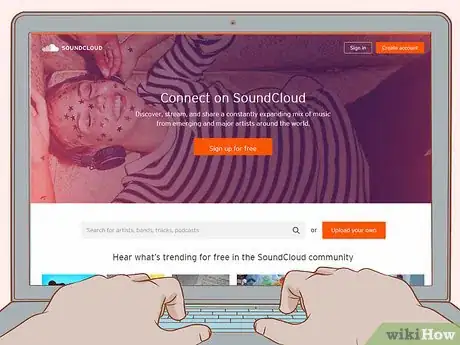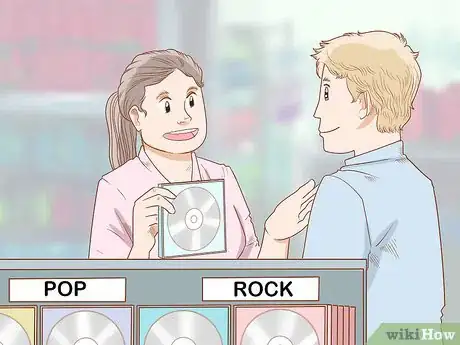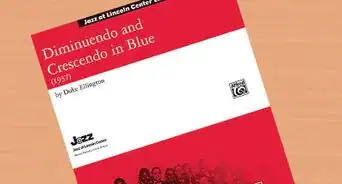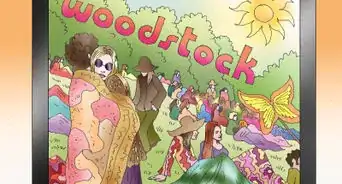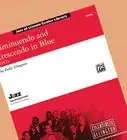wikiHow is a “wiki,” similar to Wikipedia, which means that many of our articles are co-written by multiple authors. To create this article, 20 people, some anonymous, worked to edit and improve it over time.
This article has been viewed 53,691 times.
Learn more...
Whether composing, playing, or simply listening to it, nearly everyone loves music. Learning about music is not an overnight process, but should be continued for a lifetime by those passionate about diving deeper into the music world. With an open mind and a desire to learn, you will gradually develop a deeper understanding of all aspects of music, and your knowledge will become apparent to everyone around you.
Steps
Building a Solid Musical Foundation
-
1Explore genres you don’t usually listen to. There are countless types of music, each with a definite sound that can be categorized into genre. Try listening to music from a new genre every day. You can learn something new from each individual type of music, so don’t limit yourself to listening only to the music you already know you love.[1]
- Satellite radio, such as SiriusFM, is a great way to explore different genres with little work. There are stations for almost every type of genre. Simply flip through the stations to get exposure to a variety of music.
- Check out a comprehensive list of all possible genres at http://www.musicgenreslist.com.
- A detailed blog that focuses specifically on trending genres and genre news can be found here: http://www.musicgenreslist.com/music-genres-blog/
-
2Learn about different sub-genres and micro-genres. Sub-genres and micro-genres are specialty, niche genres that are narrower than the bigger, more popular genres. Explore different sub-genres and micro-genres to deepen your knowledge of more obscure types of music.
- Some examples of sub-genres are Straight-Edge punk, Indie R&B, and Latin Pop.
- Some examples of micro-genres are Jazzrap, Electropunk, and Metalcore.
- A great, comprehensive list of genres, sub-genres, and micro-genres can be found at http://everynoise.com/.
Advertisement -
3Listen to music that’s currently trending. Music billboards rank songs and artists based on popularity, and there are billboards for every type of music. Keep an eye on the billboard rankings and listen to songs you haven’t heard before. This is a great way to stay up-to-date on trends in the music world.
- A great site to view the current billboard rankings is https://www.billboard.com/charts.
-
4Read up on the history of genres, sub-genres, and micro-genres. This will give you a deeper understanding of where the music you love originated. Knowing this history of the music you love is important if you want to truly consider yourself a music know-it-all.
- A great site that breaks down the history by year and genre is https://musicmap.info/
Utilizing Digital Music Resources
-
1Sign up for a membership to an online digital music service. Online digital music services are one of the best resources for experiencing music you’ve never heard before. Most of these services personalize the music they play based upon the songs and artists you currently listen to, so it’s a great way to get introduced to new musicians in the genre you like.
- Spotify and Pandora are 2 of the most popular personalized radio services on the web. They are both free to use if you are willing to listen to advertisements. Ad-free subscriptions are cheap, and are a great investment for serious music-goers.
-
2Install popular music apps on your mobile device. While you can listen to your digital music service on the computer, many music lovers prefer to listen on their mobile phones. Pandora and Spotify both offer mobile apps that you can install directly onto your mobile phone for easier convenience.
- Shazam is a great mobile app that will tell you the name, artist, and album of a song. The app will automatically recognize the tune and identify it for you. Use this app when you hear a song on the radio and want to know what it’s called or who it’s by.
-
3Use an online composition site to learn how to make your own music. The benefits of learning how to compose music is an introduction to scales, musical terminology, and other technical aspects underlying the music industry. There are countless websites nowadays that will walk you through the basic technicalities of reading and composing music. A few examples are:
-
4Follow 3-4 music blogs focused on different types of music. Well-written music blogs offer their readers a wealth of information, including album and concert reviews, latest news in the music industry, and recommendations for songs and artists that may be trending. Some popular music blogs:
-
5Join a few online music fan communities. Joining an online fan community will allow you to meet others who are just as passionate about the industry as you are, and to exchange recommendations, reviews, and knowledge with one another. Music fandom is essentially a social activity, and there are countless online communities made up of music fans from all across the world.[3] Some popular online fan communities are:
- http://www.reddit.com/
- https://boards.vinylcollective.com/
- http://board.okayplayer.com/okp.php
- http://www.drownedinsound.com/community/boards/music
- https://www.musesongwriters.com/forums/[4]
- This is a great way to expand your circle of friends if you’re anxious about meeting people in person, as you can ask questions and reach out to people without worrying about repercussions.[5]
-
6Explore other popular music websites. Bandcamp and Soundcloud are great websites for learning more about indie or more obscure artists. Radio Djs of all genres post their sets on Mixcloud, which you can search by genre tags. Countless other websites offer similar exposure to artists, playlists, and trending music, so take some time to explore them.
- Bandcamp is located at https://www.bandcamp.com/
- Mixcloud is located at http://www.mixcloud.com/
- Soundcloud is located at https://soundcloud.com/
Learning About Music in Person
-
1Go to local clubs or bars that have live music. Many communities have magazines or newspapers that list when and to find live music venues. Pick one up and schedule an outing to a band you’ve never heard or a venue you’ve never visited.
- Going to local live music events surrounds you with others who are just as passionate about music as you.
- Go out of your way to yourself to some of the music-goers at these events. Chances are they will give you suggestions on the best spots to listen to music.
- Watching music live is completely different from listening to recorded music, because you get to see and feel the vibes of the musicians as they play.
-
2Attend concerts of popular artists who are visiting your area. Listen to radio stations or your local news channel to hear about popular artists who are coming to your city. If you hear that an artist you love is coming to town, invest in a ticket to see them play. You may not get the opportunity in the future, and watching an artist perform live is completely different than listening to their recordings.
- Tickets can range from cheap to expensive, but are usually cheaper if you buy them early.
-
3Sign up for music lessons at a local music school. Whether you want to learn to play an instrument or perfect your signing technique, many local colleges and music schools offer lessons for beginners. Check online for places in your community that offer music lessons, and call them to see if they offer what you’re looking for.
- If you would prefer to learn music one-on-one, look into private lessons from independent music teachers.
-
4Visit record stores and ask for suggestions on what to listen to. Good record-store clerks love it when people ask for suggestions on new music worth listening to.[6] Don’t be afraid to ask a lot of questions. They will probably be happy to share their knowledge, and this is the only way you’ll learn!
Warnings
- Never share personal information with strangers on the Internet. Protect your identity, and never tell anyone where you live!⧼thumbs_response⧽
References
- ↑ https://www.joytunes.com/blog/learn-to-play/listen-to-all-the-music/
- ↑ https://blog.feedspot.com/music_blogs/
- ↑ http://nancybaym.com/2009BaymMIDEM.pdf
- ↑ https://pigeonsandplanes.com/in-depth/2014/04/15-of-the-best-music-forums-on-the-web/
- ↑ https://www.npr.org/sections/allsongs/2012/12/12/167066638/we-get-mail-learning-to-love-music-you-dont-know
- ↑ https://www.npr.org/sections/allsongs/2012/12/12/167066638/we-get-mail-learning-to-love-music-you-dont-know
About This Article
To be a music know it all, try to listen to a new genre of music every day so you're always discovering new kinds of music. If you find a particular genre that you like, try exploring the related sub-genres and micro-genres and reading up on the history of that type of music. You should also follow a few music blogs, like Pitchfork and The Fader, so you can read reviews and news about popular music in the industry. To learn how you can use music apps and online forums to become a music know it all, scroll down!
